Apart from food such as Takoyaki, Ramen, Sushi, Onigiri, etc, Japanese cuisine also has a lot of interesting and delicious dishes to try. Today, we want to introduce Mizu Yokan, a traditional Japanese sweet (Wagashi) from Fukui Prefecture. Mizu Yokan is a snack with a pleasant smooth texture and is characterized by its freshness and soft texture. This time, we will talk about such Yokan, from the characteristics, origin of the name, history and its recipe, etc.
What is Mizu Yokan?
Mizu Yokan (水羊羹) or red bean jelly, also known as wagashi in Japanese cuisine, is a classic Japanese sweet from Fukui prefecture. This is a sort of yokan that contains more water than traditional yokan. It’s a delightful treat that the Japanese serve chilled during the hotter summer months. It is just a jelly dish made out of red azuki beans, agar, and sugar. Tsubuan (smooth red bean paste) or koshian are two types of red azuki beans (coarse red bean paste). In some yokan versions, they change the red beans with a white kidney bean paste known as shiro-an. Yokan is usually shaped into a long rectangular block and then cut before being served. Yokan and Mizu yokan are available in a variety of flavors. Foods like chopped chestnuts, sweet potatoes, and grapes are examples of supplementary ingredients. Green tea or matcha powder is another popular flavour enhancer.
Etymology
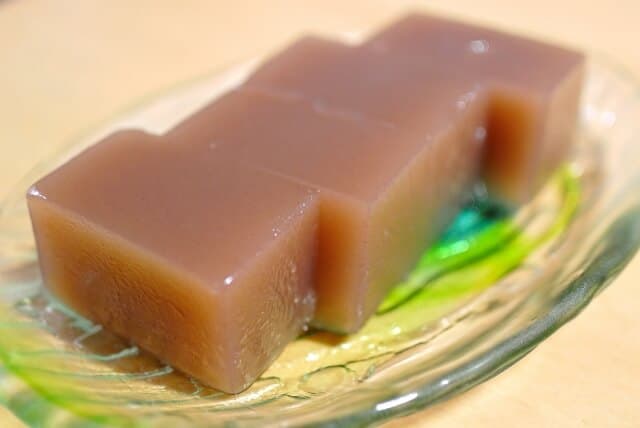
The name Mizu Yokan literally means Water Yokan has two Japanese words – Mizu and Yokan. Mizu (水) meaning ‘water’ in Japanese and Yokan (羊羹) is a general term that refers to this jelly dessert made of red azuki beans, agar, and sugar. Thus, this snack, lighter than the Neri-yokan, which is more compact, is particularly popular on long, hot summer days.
Mizu Yokan History
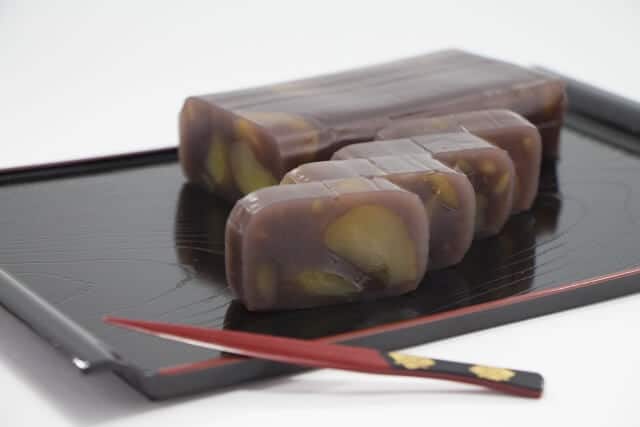
A monk who studied in China during the Kamakura-Muromachi era (between 1185 to 1573) brought the Yokan (sheep soup) to Japan. Monks, on the other hand, are not supposed to eat meat and hence could not have the sheep soup. That’s when the red bean-based vegetarian form of yokan first created. Yokan was originally a monk’s food, but it has now evolved into a delicious delight that anybody can enjoy.
Mizu yokan is supposed to have been famous in the Edo period. It was originally used as a dessert to accompany New Year’s dinners, hence it became known as a winter sweet. It also has a lower sugar content and is more readily damaged than regular yokan, which is one of the reasons it was used as a winter sweet. Because food preservation technology has advanced, it is now possible to eat regardless of the season.
Season for eating Mizu Yokan
Usually, people in Japan eat Mizu yokan in summer, and it is also a kigo (a season word) of summer for haiku (a Japanese seventeen-syllable poem). However, people in places like Fukui Prefecture, Osaka Prefecture (in the Nose-Cho area), Kyoto Prefecture (in the Kameoka City area), Ishikawa Prefecture (in the Wajima City area), Niigata Prefecture (in the Joetsu City area), Yamagata Prefecture (in the Tsuruoka City area), and Tochigi Prefecture (in the Nikko City area). eat it in winter. There are various reasons for this. One of them is that Fukui’s Mizu yokan has a low sugar content, so it couldn’t be stored for a long time at room temperature back in the days when there were no refrigerators in homes. Because of this, locals eat this only during winter and this custom continues.
Mizu Yokan Recipe
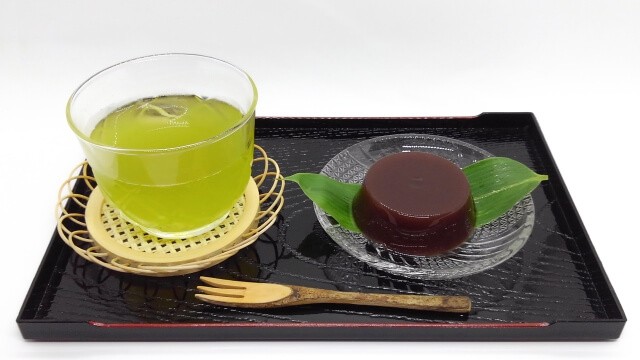
Mizu Yokan Ingredients
| Ingredients of Mizu Yokan for 4 person | |
| Koshian | 300g |
| Water | 500g |
| Sugar | 20g |
| Powdered agar | 4g |
| Salt | 3g |
How to make Mizu Yokan
Put water and agar in a pan and heat over medium heat. When it comes to a boil, reduce the heat to low and stir. When the agar has melted, add sugar, salt and mix further.
When the sugar has melted, you can now add the red bean paste and mix well. Then, mix well to get a smooth finish.
When the red bean paste has melted, remove the pot from the heat, place it in a bowl of ice water, and mix while cooling. Be careful not to let water get into the pot.
When the heat of the liquid, pour it into a storage container, cover it, and cool it in the refrigerator for 2 to 3 hours to harden it.
When the Mizu yokan hardens, make a cut with a knife and remove it from the container to complete.
What is the charm of mizu yokan?
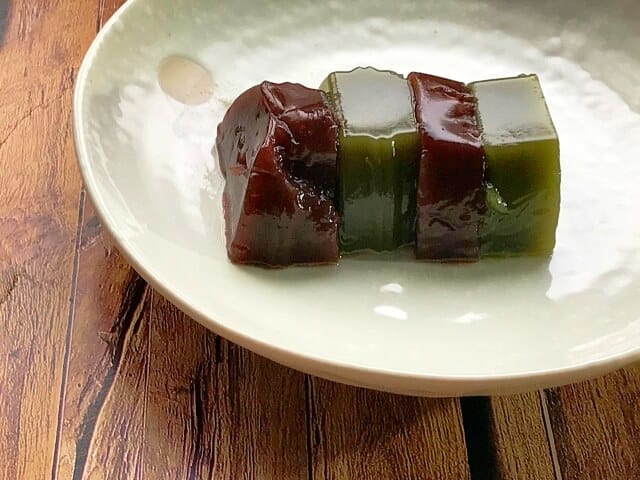
Mizu yokan is famous for its light and silky texture. The sweetness is low compared to kneaded yokan, and the flavor is mild, so you may enjoy it even in the hot summer months. The water yokan with a significant amount of water also has fewer calories than kneaded yokan, making it a good choice for individuals watching their diet. Because this is a basic candy, it can be customized in a variety of ways.
What are the ingredients of mizu yokan?
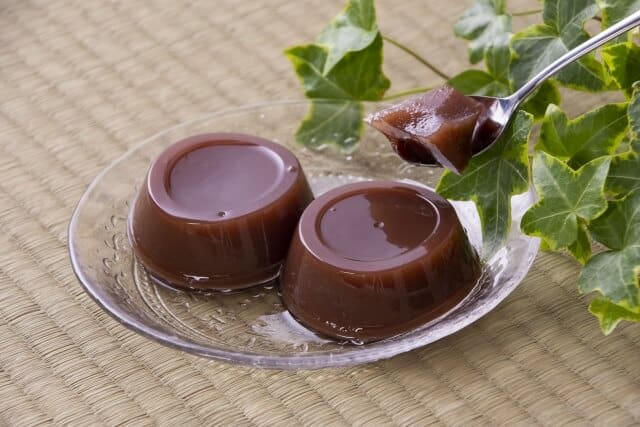
The raw materials for Mizu yokan are sugar, red bean paste, agar and water. It is a delicious Japanese sweet that is very easy to make and has been a staple of tea sweets for a long time. Agar, the raw material of Mizu yokan, is a material often used in Japanese sweets, and it is of its nutritional components.
What are the nutritional benefits of mizu yokan?
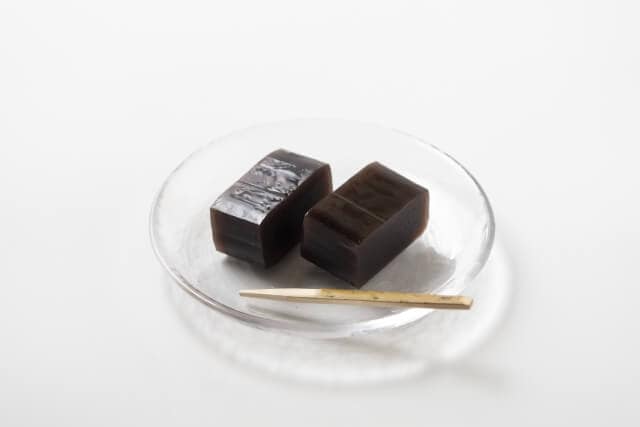
The “fatty acid” found in Mizu yokan’s source material has the effect of lowering bad cholesterol. Mizu yokan includes amino acids, which are essential nutrients for physical living. The nutritional components of Mizu yokan include vitamin K and folic acid. These two nutritional components are vitamins that are for blood coagulation and bone development in humans. Potassium, calcium, iron, zinc, copper, and magnesium are among the minerals found in Mizu yokan.
Where to buy Mizu Yokan
Aizu Nagatoya (会津長門屋)
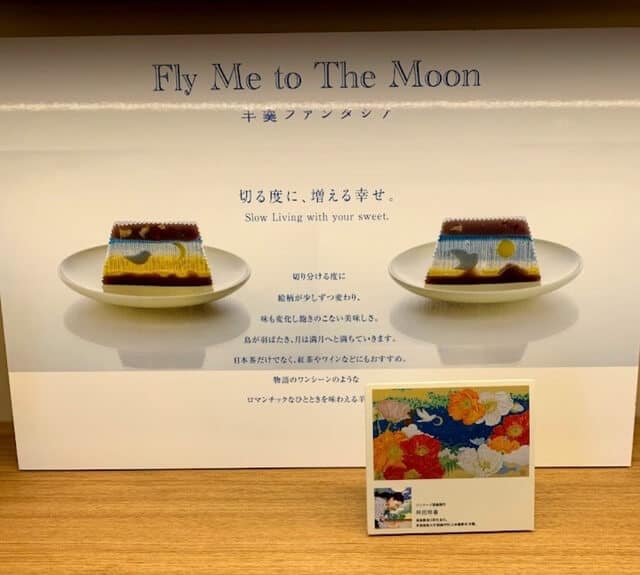
In the first year of Kaei’s founding, Mizuyokan is a shop that is making sweets with particular attention to ingredients in Aizu. Not only red beans but they also use walnuts, cranberries, raisins and other 6 kinds of ingredients and you can enjoy different tastes depending on where you put the fork.
Azabu Shogetsudo (麻布昇月堂)
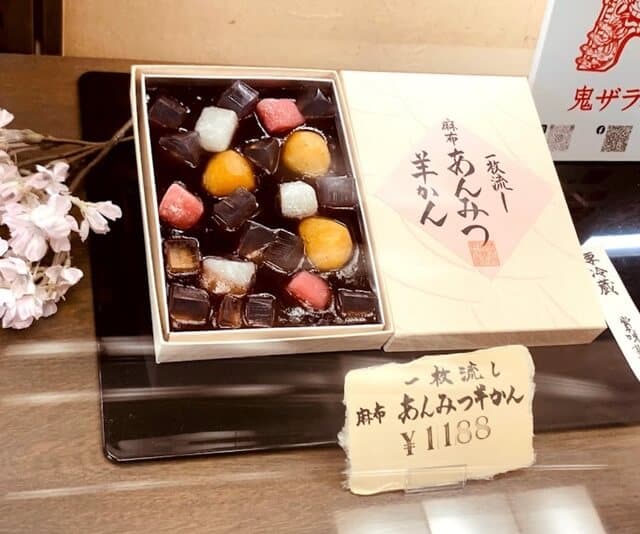
The shop mashed their yokan but it contains anmitsu ingredients. It is a rare Mizu yokan that you can enjoy the deliciousness of anmitsu such as agar, fertilizer, and chestnuts. Unlike ordinary smooth red bean jelly, it has a gorgeous appearance as if it is a studded jewels.
Imuraya (井村屋)
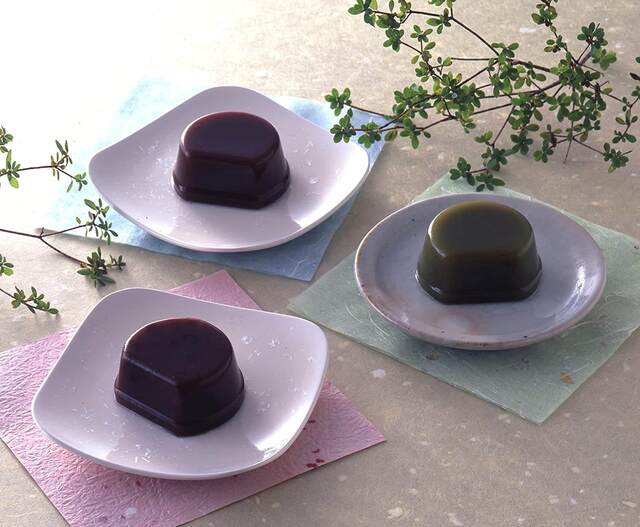
It is a Mizu yokan from “Imuraya”, a manufacturer familiar with ice cream and steamed buns. You can enjoy three types of yokan named “Reng”, “Matcha” and “Ogura”. They carefully selected adzuki beans from Hokkaido and matcha from Kyoto so that you can enjoy the original taste of azuki beans.
Kyoto Katsura Tsuruya Mitsunobu (京都・桂 鶴屋光信)
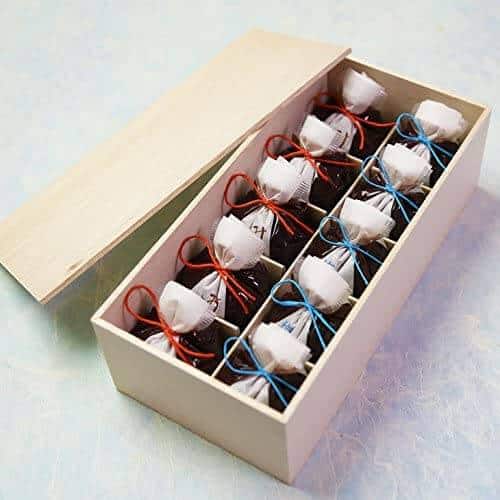
You can enjoy two flavors, red bean jelly, and salt. Salted yokan uses Okinawan salt and has an exquisite balance of sweetness and saltiness. Since the azuki beans are carefully cooked so that they do not become watery, you can enjoy a rich taste and a mellow texture.
Final Thoughts
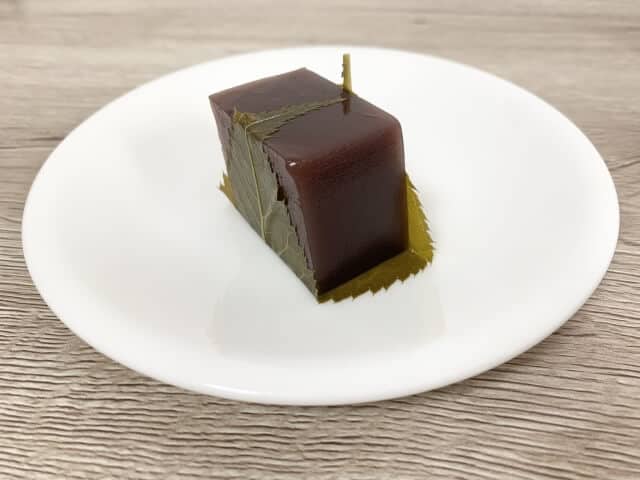
Yokan may appear outdated and uninteresting. When combined with matcha, it becomes one of the tastiest pleasures; the sweet taste of azuki and the bitter taste of matcha are a wonderful fit. From little children to the elderly, everyone enjoys the light flavor, and it is one of the most popular sweets as a midyear present or keepsake. Another Fukui prefecture specialty is the Echizen Gani or the King of Delicious Seafood.
If you are into Japanese sweets, you can click here for more.
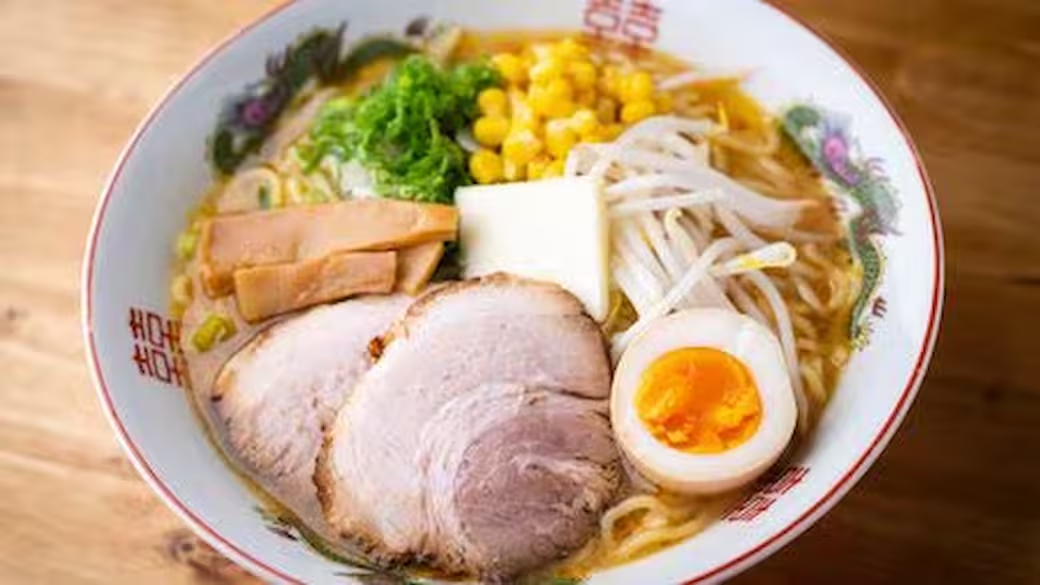

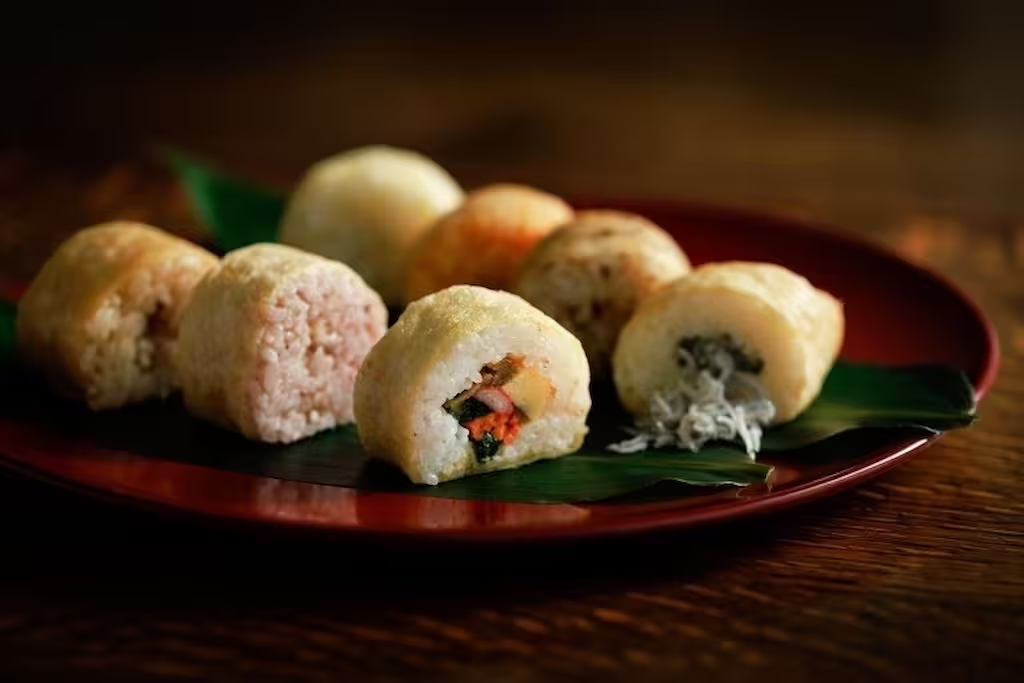
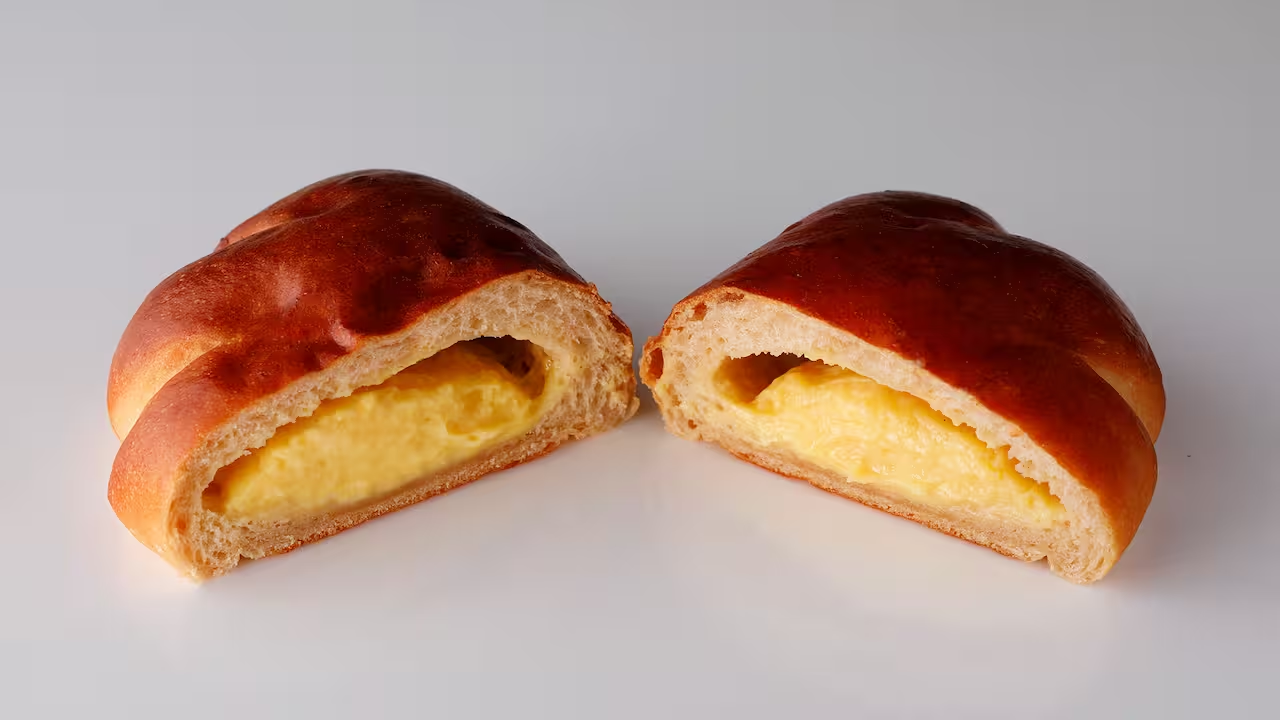
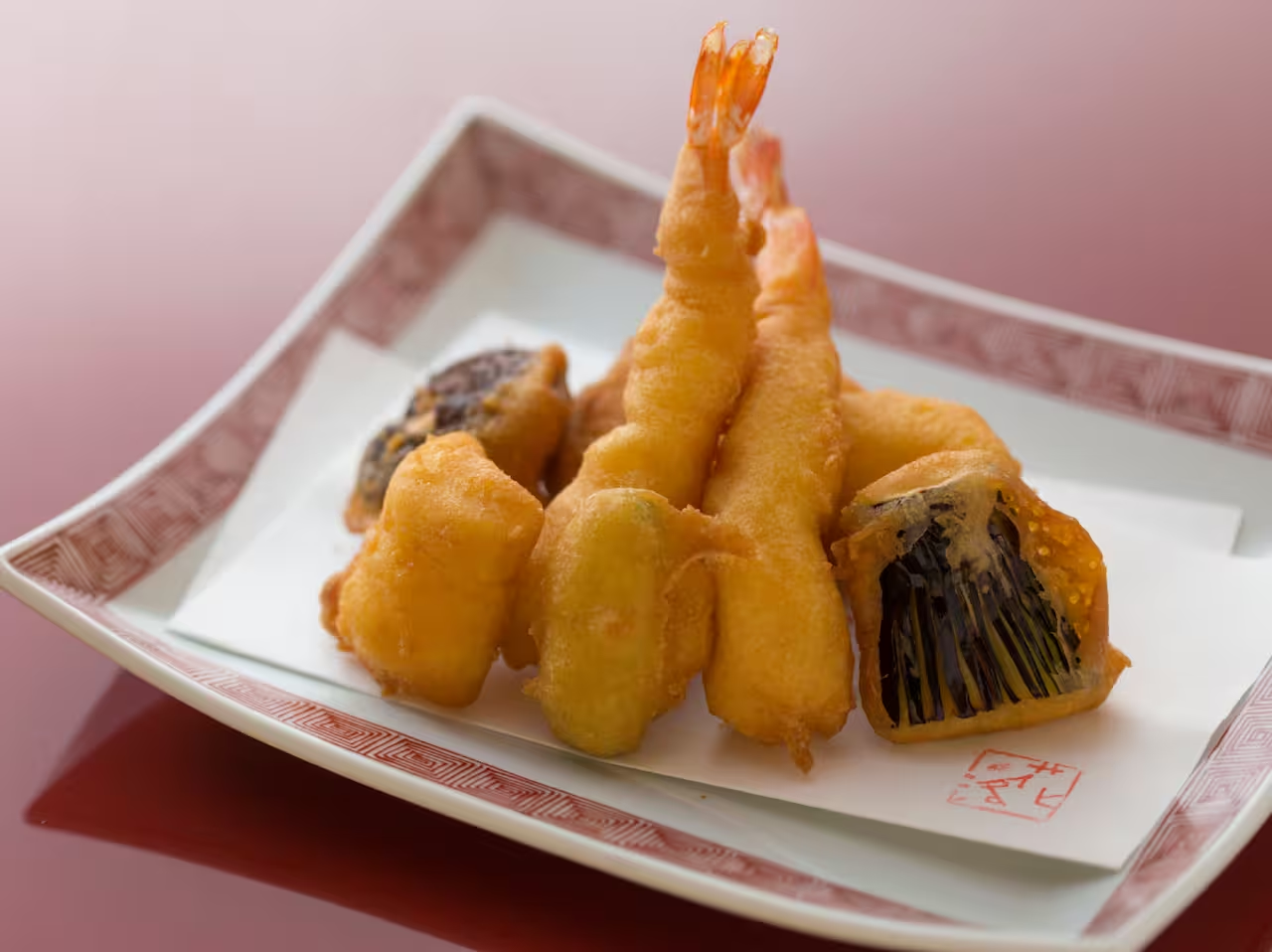

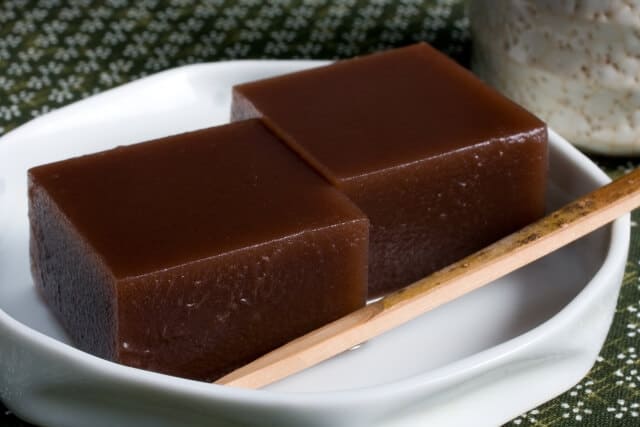
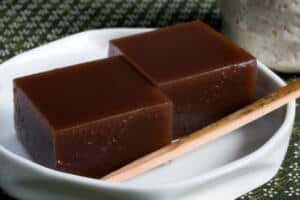
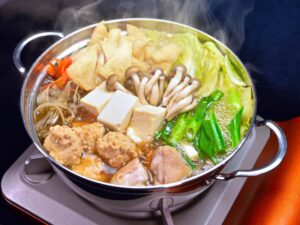
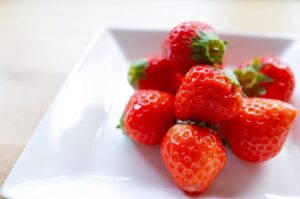
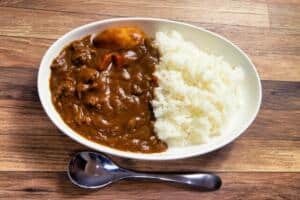
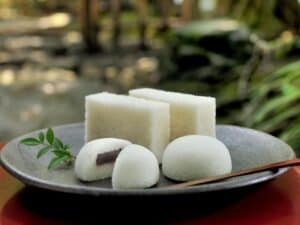
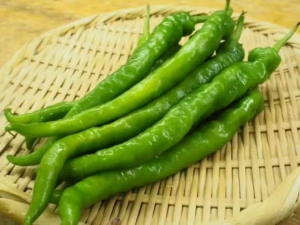
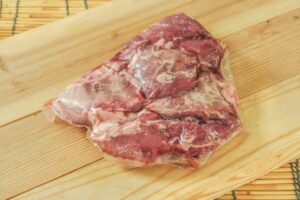
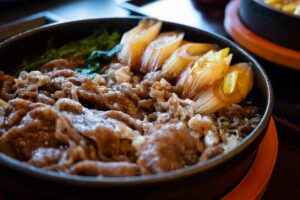
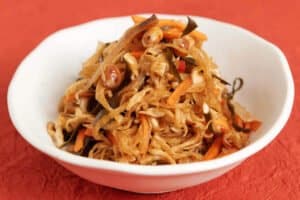
Comments